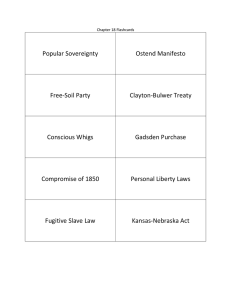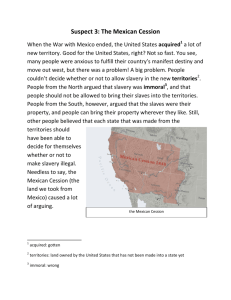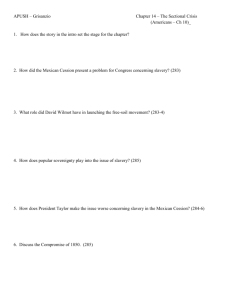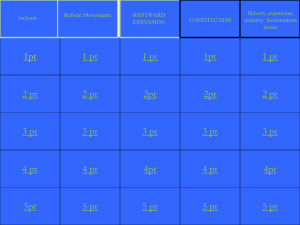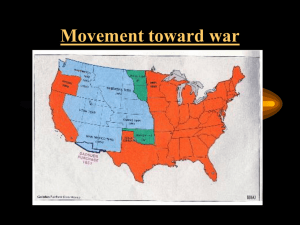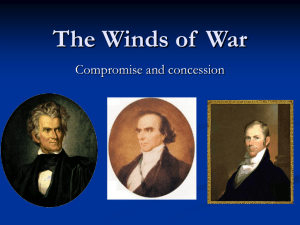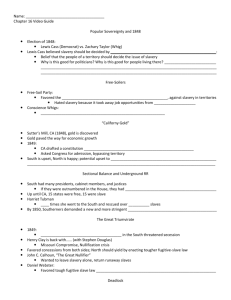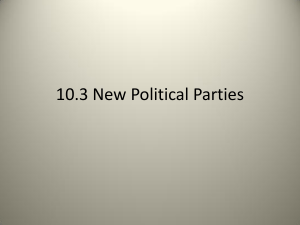Vocab list 3 - westward expansion
advertisement
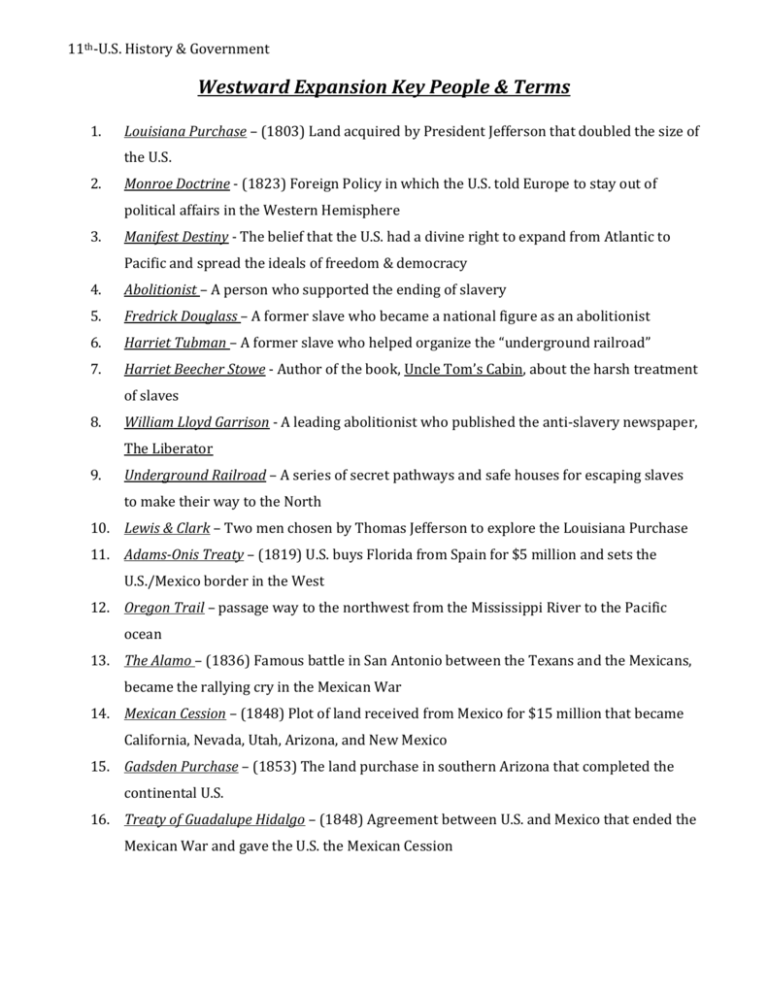
11th-U.S. History & Government Westward Expansion Key People & Terms 1. Louisiana Purchase – (1803) Land acquired by President Jefferson that doubled the size of the U.S. 2. Monroe Doctrine - (1823) Foreign Policy in which the U.S. told Europe to stay out of political affairs in the Western Hemisphere 3. Manifest Destiny - The belief that the U.S. had a divine right to expand from Atlantic to Pacific and spread the ideals of freedom & democracy 4. Abolitionist – A person who supported the ending of slavery 5. Fredrick Douglass – A former slave who became a national figure as an abolitionist 6. Harriet Tubman – A former slave who helped organize the “underground railroad” 7. Harriet Beecher Stowe - Author of the book, Uncle Tom’s Cabin, about the harsh treatment of slaves 8. William Lloyd Garrison - A leading abolitionist who published the anti-slavery newspaper, The Liberator 9. Underground Railroad – A series of secret pathways and safe houses for escaping slaves to make their way to the North 10. Lewis & Clark – Two men chosen by Thomas Jefferson to explore the Louisiana Purchase 11. Adams-Onis Treaty – (1819) U.S. buys Florida from Spain for $5 million and sets the U.S./Mexico border in the West 12. Oregon Trail – passage way to the northwest from the Mississippi River to the Pacific ocean 13. The Alamo – (1836) Famous battle in San Antonio between the Texans and the Mexicans, became the rallying cry in the Mexican War 14. Mexican Cession – (1848) Plot of land received from Mexico for $15 million that became California, Nevada, Utah, Arizona, and New Mexico 15. Gadsden Purchase – (1853) The land purchase in southern Arizona that completed the continental U.S. 16. Treaty of Guadalupe Hidalgo – (1848) Agreement between U.S. and Mexico that ended the Mexican War and gave the U.S. the Mexican Cession 17. Missouri Compromise – (1820) Admitted Missouri into the union as a slave state and Maine as a free state and banned slavery in the rest of the Louisiana Territory 18. Compromise of 1850 – Compromise that admitted California as a free state and allowing popular sovereignty to decide on slavery in the rest of the territories while also passing a fugitive slave law 19. Popular Sovereignty – The concept that people have to power to make decisions democratically by way of voting 20. Gold Rush – Discovery of Gold in California in 1848 caused the population to increase over 100,000 in one year 21. Fugitive Slave Law – As part of the Compromise of 1850, required escaped slaves to be returned to their owners 22. Kansas-Nebraska Act - (1854) Kansas and Nebraska territories were formed, and popular sovereignty would decide the fate of slavery in each 23. Bleeding Kansas – Pro-slavery and Anti-Slavery groups rushed to populate Kansas and decide the future of slavery causing extreme violence to break out 24. Dred Scott Decision – (1857) Supreme Court decision that slaves are a form of property and that the Government cannot deprive a person of his private property 25. Wilmot Proviso – A proposed law by northerners to outlaw slavery in any new territory acquired in the Mexican War which was eventually voted down
